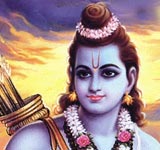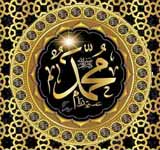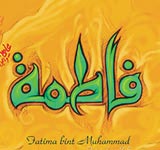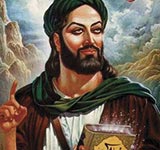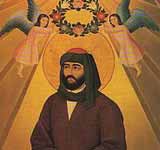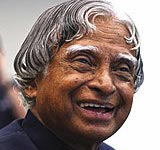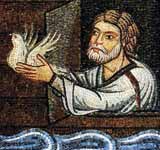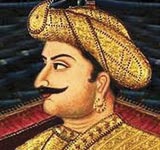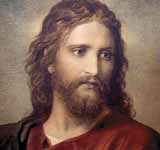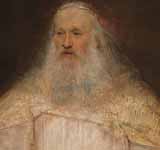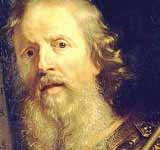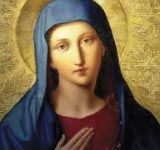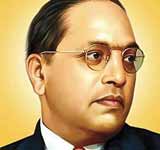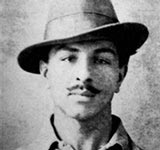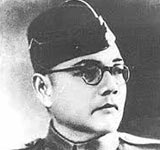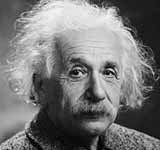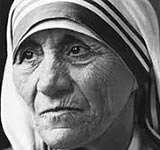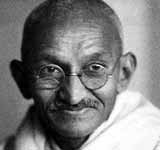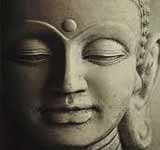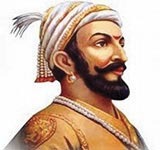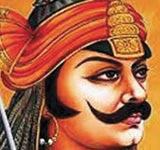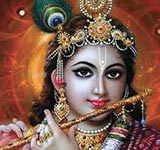Muhammad was the founder of Islam. His full name in Arabic is Abū l-Qāsim Muḥammad ibn 'Abd Allāh ibn' Abd al-Muttalib ibn Hāšim al-Qurayšī, which is castilianized as Muhammad. In the Muslim religion, Muhammad is considered "the last prophet" (jātim al-anbiyā), the last of a long chain of messengers sent by God to actualize his message, among whose predecessors Abraham, Moses and Jesus of Nazareth.
Fatima was the daughter of the Prophet Muhammad from his first wife, Khadijah. She was Muhammad's fourth daughter, after Záynab, Ruqayya, and Ummu Kulthum. At ten years of age (although other sources say she was nineteen years old), she married Ali ibn Abi Tálib, the fourth of the Muslim caliphs and the first Imam of the Shiite Muslims, son-in-law and cousin of Muhammad, with Ali who had three sons: Hasan, Husáyn and Muhsin, and two daughters: Záynab and Ummu Kulthum. Fatima gave them the same name as two of her deceased sisters to distribute the names of the Prophetic House.
Abu Bakr as-Siddiq (Abdullah ibn Abu Qahafa) was a friend, faithful ally, and father-in-law of the Muslim prophet Mohammed. His father's name was Uthman Abu Quhafa and his mother Salma Umm-ul-Khair. Abu Bakr had a total of six children with four women. According to Islamic Traditions, Abu Bakr is one of the ten people who were testified that they were destined for Paradise. Abu Bakr also belongs to the so-called' Four Right-Guided Caliphs'. It is said that Abu Bakr and Ali passed on the esoteric doctrine that was later called tasawoef or Sufism.
Ali ibn Abu Talib, also imam Ali or Caliph Ali was a cousin and son-in-law of the Islamic prophet Mohammed. He was the fourth caliph (656-661) or successor of Muhammad for the Sunnis and also the first imam of the Twelve Imams for Shiites and Alevis. Shiites and Alevis believe that Ali should have been the first caliph according to the will of Muhammad and God. They regard his three predecessors’ asusurpators. Also within Sufism, Ali is seen as the most important of all Mohammed's companions, because he was specially taught by the Prophet. He is also called the father of Sufism in many circles. The Hadith (statement) in which Mohammed says: "I am the city of Knowledge, Ali is the Gate of it!" is considered important in Sufism. He is known in Islam for his courage, heroism, strength, patience, wisdom and knowledge. He was the first young person to enter Islam and then stayed for emigration close to Mohammed. He is considered Mohammed's best student.
5. Umar ibn Al-Khattab
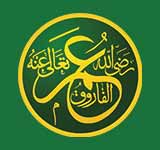
Avul Pakir Jainulabdeen Abdul Kalam usually called Dr. A. P. J. Abdul Kalam was a politician and president of India. He was a great Indian scientist. He was also a space travel expert, engineer and author, he was called the Missile Man for his work for the arms race and is considered a progressive leader, mentor, innovator and visionary, of the Muslim religion. Dr. Kalam received his Ph.D. in aeronautical engineering from the Technological Institute of Madras in 1958. After obtaining his academic degree, he became a member of the Organization for Research and Development of the Defense of India (DRDO). Four years later, he became a member of the Indian Space Research Organization, where his team successfully launched several satellites.
According to the scriptures, he was the tenth and last of the super longevo antediluvian patriarchs. Noah died 350 years after the flood, at the age of 950 years. This makes him the longest-lived man in the entire Bible after Methuselah who lived 969 years (although the Samaritan Pentateuch ascribes him 720) and Jared of 962 years, more so than Adam who died at 930 years of age, (after Noah, the age of death drastically plunges until the scant 120 years of Moses). In proportion to his long life, he fathered his three children when he was 500 years old. Although the name of Noah's wife is not specified in the Bible, in some traditions he is identified as Nama.
Even though there is a dispute about the name of Tipu Sultan in the pages of history, it cannot be denied that it is impossible to erase Tipu Sultan's name from the pages of history. Born on 20 November 1750 in Devanahalli, Karnataka, Tipu's full name was Sultan Fateh Ali Khan Shahab. History sees Tipu Sultan not only as a worthy ruler and warrior, but also a scholar. His father Hyder Ali, who was impressed by his valor, conferred on him the title of Sher-e-Mysore. Like his father, he was also a highly skilled commander and a clever diplomat, which is why he always wanted to avenge the defeat of his father from the British, the British were quite afraid of him.
For most Christian denominations, he is the Son of God and, by extension, the incarnation of God himself. The Judaism denies his divinity, which is incompatible with its conception of God. In Islam, where he is known as Isa, he is considered one of the most important prophets. The Synoptic Gospels relate that Jesus climbed a mountain to pray with some of the apostles, and while he was praying, the appearance of his face changed, and his dress became white and shining. Moses and Elijah appeared next to him.
Abraham (Ibrahim), originally Abram, is the first of the three patriarchs of Judaism. Its history is told in all the sacred texts of the Abrahamic religions and it plays an important role as an example of faith in Judaism, Christianity and Islam. The biblical narrative revolves around the themes of posterity and the earth. Abraham is called by God to leave the house of his father, Terah, and settle in the land originally given in Canaan, but which God now promises to Abraham and his descendants. Several candidates are presented who could inherit the land after Abraham, but all are rejected in favor of Isaac, his son with his half sister Sara. Abraham buys a tomb (the Tomb of the Patriarchs) in Hebronto be Sarah's grave, thus establishing her right to land, in the second generation his heir Isaac marries a woman from his own relatives, thus excluding the Canaanites from any inheritance. Abraham, later, marries Quetura and has six more children, but at his death, when he is buried next to Sara, it is Isaac who receives "all the goods of Abraham", while the other children receive only "gifts".
Moses was the greatest prophet according to the Tenach. The Hebrew Bible describes him as the leader of the Israelites on the exodus from Egypt and on the way through the desert to the borders of Canaan. Traditionally, the first five books of the Bible are attributed to Moses (the Torah), as a result of which all Israel's legislation was supported by his authority. Also, Ps 90 is attributed to Moses. According to the Koran, Moses is a messenger and prophet.
Mary, mother of Jesus of Nazareth, was a Jewish woman from Nazareth in Galilee. Christians believe that without any human intervention, Mary became pregnant with the nature of the Holy Spirit, and was chosen by God Himself to be born to her son. The Catholic and Orthodox Churches believe that Mary never committed a sin. They appeal to Luke 1:28, where the angel Gabriel addresses her with: "Hail, full of grace". Islamic theology also states that Maryam is the mother of Isa (Jesus).
In 1935 Ambedkar made his famous statement that he could be born a Hindu but would not die as a Hindu, 12 years later he became the first post-independence Minister of Law but after 4 years he resigned from the cabinet. The rest of his life was later dedicated to the development of Buddhism in India, he announced in 1954 and two years later at a ceremony in Nagpur, Ambedkar became a Buddhist who was joined by hundreds of thousands of supporters at the time of precisely October 14, 1956. It was Chandramani, a senior monk who was the leader of the ceremony when Ambedkar declared three protections to the Buddha, Dhamma and Sangha. Ambedkar passed away in December 1956.
Bhagat Singh was one of the revolutionaries who participated in the Indian independence movement. The sense of martyr Shaheed Bhagat Singh was called. He is considered a martyr who fought against the British occupation and became a martyr. He was involved in the Lahore conspiracy and was sentenced to death by the British government. From his early years, Bhagat Singh had worked against the British Raj. The books on the revolutionary organizations in Europe that he had read at the time were also anarchist brought closer to Marxism. Historians describe him as one of the first Marxists in India to prefer armed struggle over non-violent means.
Subhash Chandra Bose, also known as Netaji, was the pioneer and greatest leader of India's freedom struggle. During World War II, he formed the Azad Hind Fauj with the support of Japan to fight against the British. The slogan 'Jai Hind' given by him has become the national slogan of India. His slogan of "Give me blood, I will give you freedom" was also very popular at that time. Some historians believe that when Netaji tried to get help from Japan and Germany, the British government ordered their spies to kill him in 1941.
Albert Einstein was a physicist German origin Jew, nationalized after Swiss, Austrian and American. He is considered the most important, well-known and popular scientist of the 20th century. In 1905, when he was an unknown young physicist, employed at the Bern Patent Office, he published his theory of special relativity. In it, he incorporated, in a simple theoretical framework based on simple physical postulates, concepts and phenomena previously studied by Henri Poincaré and Hendrik Lorentz. In 1901 Einstein's first scientific work appeared: it dealt with capillary attraction. He published two works in 1902 and 1903, on the statistical foundations of thermodynamics, experimentally corroborating that the temperature of a body is due to the agitation of its molecules, a theory still debated at that time.
17. Nelson Mandela
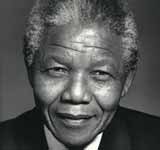
Born to the Thembu royal family and Xhosa tribe, Mandela studied law at Fort Hare University and the University of Witwatersrand. While living in Johannesburg, he was involved in anti-colonial politics, joined the ANC, and became a founding member of the ANC Youth League. As a lawyer, he was repeatedly detained for committing incitement activities and, as chair of the ANC, was tried in the Treason Court in 1956 to 1961, but was finally convicted. Although initially demonstrating without violence, he and the South African Communist Party established the Umkhonto we Sizwe (MK) militant in 1961 and led a sabotage campaign against government targets. In 1962, he was arrested and accused of sabotage and conspiring to overthrow the government, and sentenced to life in prison at Rivonia Court.
Mother Teresa, born Agnes Gonxha Bojaxhiu, was a Catholic sister, founder of the Missionaries of Charity and Nobel Peace Prize winner. She worked among the poorest of the poor in India. The congregation she founded in 1950 had more than 3,500 members in 1995 with 300 homes in 25 countries. After her death, a day of national mourning was proclaimed in India. She received a state funeral, an honor normally given only to the highest political leaders in India. On October 19, 2003, Mother Teresa was beatified by Pope John Paul II. On September 4, 2016, nineteen years after her death, Mother Teresa was canonized by Pope Francis during a special mass on St. Peter's Square.
19. Swami Vivekananda
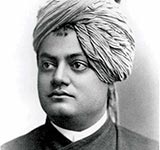
Gandhi was born on October 2, 1869 in the state of Gujarat in India. Some of his family members worked for government. As a teenager, Gandhi moved to England to study law. After he became a lawyer, he went to South Africa, a British colony, where he experienced racial discrimination called apartheid. He then decided to become a political activist in order to be able to change the discriminatory laws. Gandhi also formed a nonviolent movement.
21. Abraham Lincoln
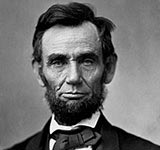
Gautama Buddha was a Shramana whose teachings followed Buddhism. He was born in Lumbini in 563 BC in the house of King Shuddhodhana of the Ikshvaku dynasty Kshatriya Shakya clan. His mother's name was Mahamaya, who was of Koliya dynasty, who died seven days after his birth. He was raised by Mahaprajapati Gautami, the queen's younger sister. After marriage, Siddhartha left the only first newborn Rahul and wife Yashodhara and left the palace in the night in search of true divine knowledge and went to the forest in search of a way to liberate the world from death and sorrows. After years of rigorous practice, he attained enlightenment under the Bodhi tree in Bodh Gaya (Bihar) and became Buddha from Siddhartha Gautama.
23. Rabindranath Tagore

24. Martin Luther King Jr.
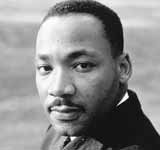
Dr. Martin Luther King Jr. (15 January 1929 - 4 April 1968) was a pastor and agitator in America. He was the prominent leader of the African-American Civil Rights Conflict. He is also called Gandhi of America. His efforts led to progress in the field of civil rights in the US, so he is today seen as a symbol of human rights. Two churches have also recognized them as saints.
25. Lakshmibai
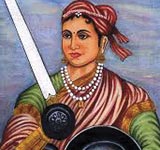
26. Malcolm X
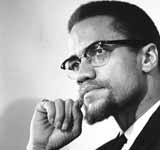
El-Hajj Malik El-Shabazz was an American religious speaker, minister, and activist. He was an advocate for the rights of African-Americans, a man who harshly accused white Americans of their crimes against their black compatriots. Instead, his detractors accused him of preaching racism and violence. He has been described as one of the most influential African-Americans in American history. When Malcolm was six years old, his father was killed for his work in defense of workers' rights and his mother entered a psychiatric hospital because of the madness of having his children taken custody of him. After living in a series of foster homes, Malcolm X became involved in the underworld of Boston and New York, and in 1945 was sentenced to between eight and ten years in prison. In prison, Malcolm X became a member of the Nation of Islam and upon his parole in 1952, became the organization's minister. For nearly a dozen years it was the public face of the Nation of Islam, but tensions between him and Elijah Muhammad (leader of the Nation of Islam) led to his departure from the organization in March 1964.
27. Guru Nanak
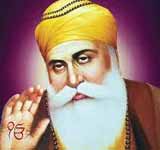
28. Guru Gobind Singh
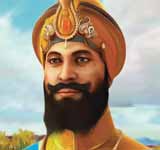
Guru Gobind Singh, born as Gobind Rāi, was the tenth and last guru, in the body of a human, of the Sikhs. He became guru on November 11, 1675 as the successor of his father singh Guru Tegh Bahadur. Guru Gobind Singh focused primarily on the teaching of Sikh principles. Gobind lost his father, mother, and all four of his sons in a religious war against the Mughal emperor Aurangzeb. Aurangzeb demanded that all Sikhs should convert to Islam, which led to fierce resistance from the Sikhs. One of the greatest achievements of Guru Gobind Singh was the creation of khalsa, the military brotherhood of the Sikhs. He was an intellectual who spoke many languages, including Persian, Arabic and Sanskrit, in addition to his native Punjabi language. He drafted a religious law, wrote poetry and was the famous author of the book called Dasam Granth (Tenth Volume).
29. Bal Gangadhar Tilak
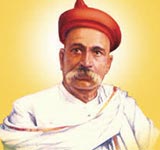
30. Chanakya
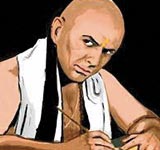
31. Sai Baba of Shirdi
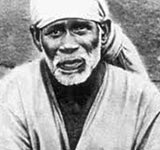
Chhatrapati Shivaji Maharaj (1630–1680 AD) was a great king and strategist of India who laid the foundation of the Maratha Empire in Western India in 1674 AD. He fought the Mughal Empire of Aurangzeb for many years. He was enthroned in Raigad in 1674 and became "Chhatrapati". Chhatrapati Shivaji Maharaj provided a qualified and progressive administration with the help of his disciplined army and well organized administrative units. He made many innovations in summer and developed a new style of guerilla warfare (Sivasutra). He revived ancient Hindu political practices and courtesy courtesies and replaced Marathi and Sanskrit as the language of royalty in place of Persian.
Maharana Pratap Singh Sisodia was the king of the Sisodia Rajput dynasty in Udaipur, Mewar. His name is immortal for valor and determination in history. He did not accept the subjection of the Mughal emperor Akbar and struggled for many years. Maharana Pratap Singh also defeated the Mughals many times in battle. In the Haldighati war of 1576, Rana Pratap faced the army of 70,000 of Amer Sardar Raja Mansingh with 500 Bhils. The contribution of Bhil Sardar Rana Punja ji in Haldighati war was commendable. For 9 years, Akbar continued to attack against Maharana with full power, taking damage and finally exhausted, he made Mewar and quit watching.
34. Mahavira
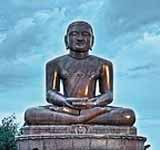
35. Joshua
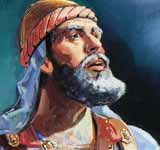
Joshua or Jehoshu'a was, according to the tradition of the Hebrew Bible, the successor of Moses as leader of the Israelites. His original name was Hosea, but Moses renamed him Joshua. The Bible book Joshua is named after him. Joshua was the son of Nun, of the tribe of Ephraim, and was Moses' servant and assistant. He led the army in the battle against the Amalekites and was one of the twelve scouts sent by Moses to Canaan. After Moses' death, Joshua became the leader of Israel and had a central role in the conquest and division of the land. Just as Moses had determined the living conditions of the Israelites with his assignment of instructions, so with the taking and division of the land, Joshua provided the basis for the further life of the people.
36. Karl Marx
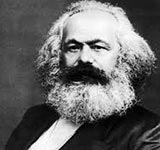
37. Baba Amte
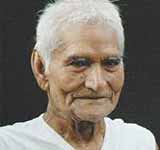
38. Ezra
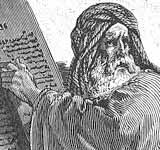
39. Nagarjuna
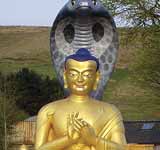
40. Zoroaster
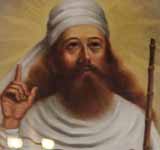
41. Parshvanatha
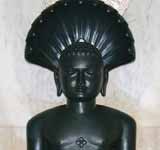
42. Kabir Das
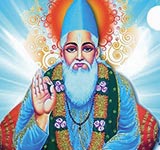
43. James the Just
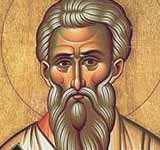
44. Samuel
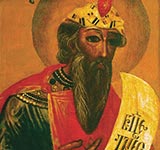
45. Bill Gates
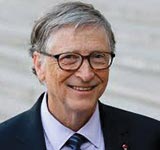
Gates Foundation is the largest privately operated transparent foundation in the world, founded by Bill Gates. This foundation is "driven by the interest and passion of the Gates family". The foundation's main goal is to improve the health system and reduce extreme poverty throughout the world, and expand opportunities for education and access to information technology in the United States.
46. Paul the Apostle
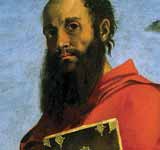
47. Deborah
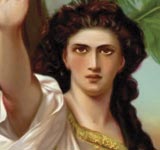
48. Mani
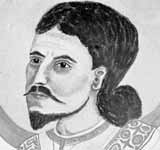
49. Mazdak
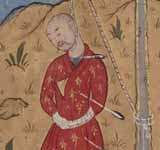
50. Lakulisha
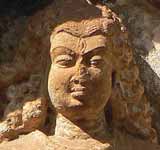
Krishna is one of the most worshiped gods in Hinduism. As such, Krishna is among others the main character in the Mahabharata, Srimad Bhagavatam and the Bhagavad Gita. In many Hindu schools of thought, Krishna is regarded as an incarnation of Vishnu, an avatara, in others as the Supreme Personality or highest manifestation of God energies, God Himself. According to Vedic tradition, Krishna was born 5,000 years ago in Mathura, capital of the kingdom of Shurasena (in today's Uttar Pradesh) in the country of Bharat-Varsa (present-day India). He was the eighth child of Princess Devaki and her husband Vasudeva.
52. Rama
